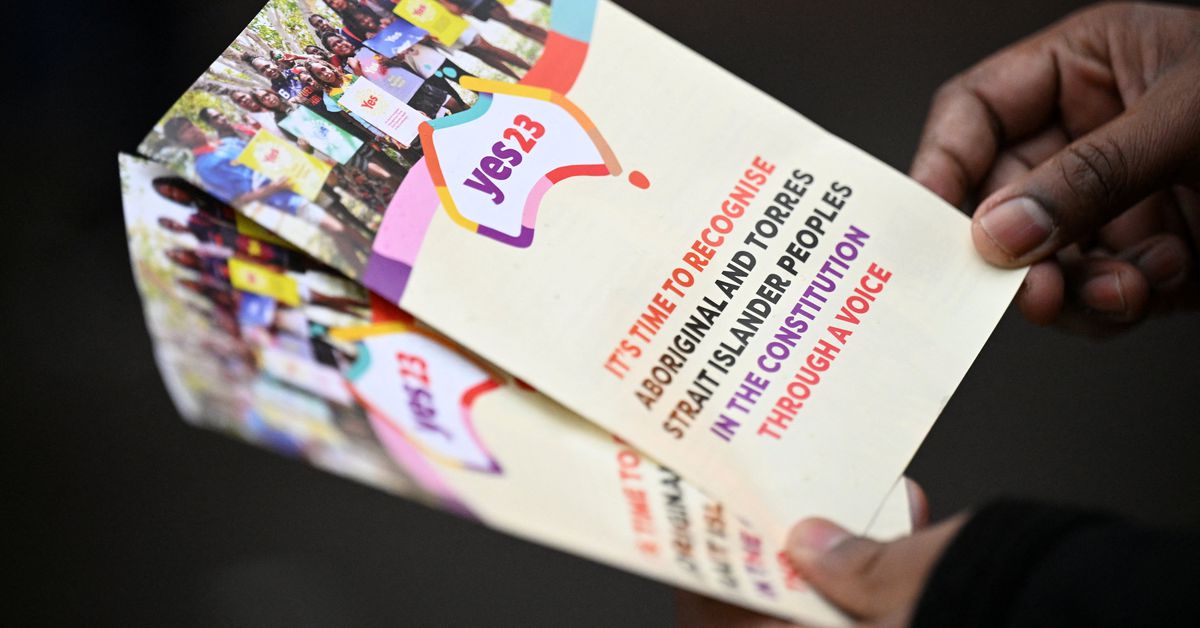Since Australian independence in 1901, only eight of the 44 proposals for constitutional change have been approved.
Support has slid to 43% in the latest survey, down from 46% in August with voters in New South Wales and Victoria, Australia’s most populous states, shifting against the proposal.
The ‘No’ vote is strongest in Queensland and Western Australia with 61% set to reject the Voice.
The referendum debate has divided opinions with supporters arguing the Voice will bring progress for the Aboriginal community, recognise the 65,000 year-old culture and “unite the nation”. Opponents say it would be divisive and hand excessive powers to the body, while others have described it as tokenism and toothless.
Making up about 3.2% of Australia’s near 26 million population, the Aboriginal people were marginalised by British colonial rulers and are not mentioned in the 122-year-old constitution.



Fair point, I’d missed that in the pamphlet, it’s still a super vague change though. Where are the definitions of what this body will look like, what powers it grants to said body and how do they define ‘matters relating to indigenous australians’? Changes to our constitution can’t be vague, they have to be clear and concise in what and how they grant powers otherwise they’re ripe for abuse. I can think of about half a dozen ways it can be abused with the current wording.
I think my point above still stands, there is zero assurances or guarantees that ‘listening to indigenous voices’ and ‘giving recognition’ will lead to better outcomes for indigenous Australians, which is kind of the whole point of all of it.
They’re probably burnt for the next election cycle if the LNP get their act together honestly, assuming it doesn’t pass anyway.
Yeah that’s basically the nail in the coffin for them, it’s all well and good to do this but maybe don’t time it when a not insignificant chunk of our population is having to choose between a roof over their heads and being well fed.
The page I linked isn’t authored by the “yes” proponents, it’s just an objective description of the change that we’re voting on. So it doesn’t (and shouldn’t) attempt to describe what each side asserts that the outcome of the amendment would be.
For that you can check out the section that each side has in the booklet. There looks to be PDF of it on the AEC site. Outcomes that the “yes” proponents expect for indigeous folks which are listed there include increased life expectancy, improved education, reduced infant mortality.
Those aren’t ironclad assurances or guarantees but I don’t think we really get those with any legislative changes. Providing some kind of assurance on an outcome would require a much more radical amendment which would likely be fraught with problems
Yeah, I think you’re probably right. If the LNP had someone a bit more charismatic than Dutton then I’d be almost certain that you’re right. Maybe Labor will get lucky and there’ll still be enough lingering resentment against the libs, but they need to be a lot less feckless than the have been so far if they don’t want to rely on that.
At the same time it doesn’t look like the LNP have learned much from last time either. Really just a shitshow all round at a time when we need some good leadership.